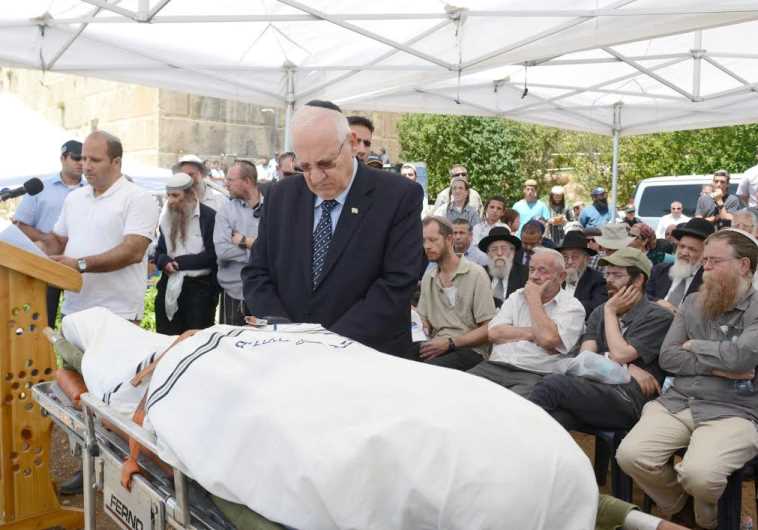Rivlin: Late Rabbi Levinger believed that to re-build Hebron, was to re-build Jerusalem
A founding father of the settlement movement was laid to rest in Hebron.
 President Rueven Rivlin attends the funeral of Moshe Levinger(photo credit: Mark Neiman/GPO)
President Rueven Rivlin attends the funeral of Moshe Levinger(photo credit: Mark Neiman/GPO)